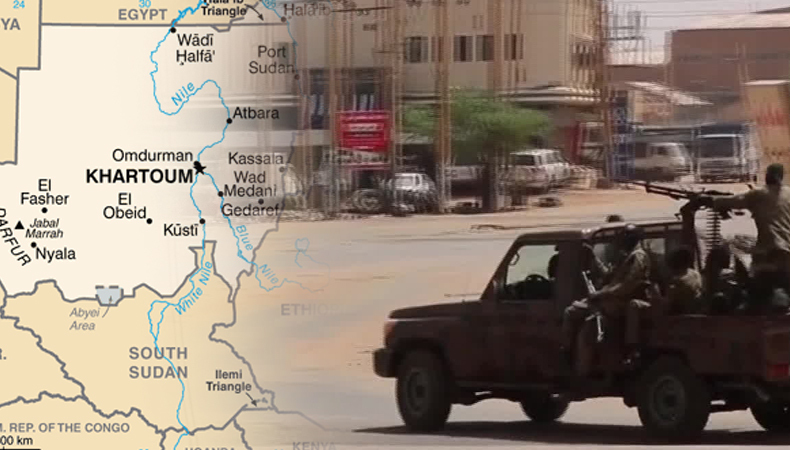Fighting has stopped in Khartoum on the first day of Eid

After repeated requests for an end-of-Ramadan cease-fire to the almost week-long battle, street violence between the forces of two opposing generals subsided in several areas of Sudan’s capital on Friday evening, according to witnesses.
Since violence broke out Saturday between forces loyal to army chief Abdel Fattah Al-Burhan and his deputy, Mohamed Hamdan Daglo, who leads the potent paramilitary Rapid Support Forces (RSF) and is also known as Hemeti, more than 400 people have died and many have been injured.
According to a statement released by the army on Friday, it has “agreed to a cease-fire for three days” to “enable citizens to celebrate Eid Al-Fitr and allow the flow of humanitarian services,” as had been requested a day earlier by US Secretary of State Antony Blinken and UN Secretary-General Antonio Guterres.
In a statement released online, Daglo claimed that he had “discussed the current crisis” with Guterres and that his attention was now “focused on the humanitarian truce, safe passages, and protecting humanitarian workers.”
Read | Saudi and UK foreign ministers discuss violence in Sudan
Blinken applauded the army’s announcement as well as one made previously by the RSF, a potent organization made up of former Janjaweed militia fighters involved in years of bloodshed in the western Darfur region.
Blinken pleaded with both sides to “pause the fighting” and “permit full and unhindered humanitarian access,” saying “It is clear, however, that fighting is continuing and there is serious mistrust between the two forces.”
After explosions shook the city for the seventh day in a row on Friday evening, witnesses in a number of Khartoum neighborhoods reported a rare quiet in the fighting.
The purpose of Eid is to be celebrated “with sweets and pastries, with happy children, and people greeting relatives,” local Sami Al-Nour told AFP. Instead, “gunfire and the smell of blood all around us” have occurred.
In the five million-person city of Khartoum, soldiers and paramilitaries engaged in violent street skirmishes, with witnesses reporting explosions close to the army headquarters.
The RSF was accused of breaking the ceasefire by “indiscriminately bombing” the airport and presidential palace, the army claimed on Friday evening.
Earlier in the week, two prior cease-fires had failed to stick. The United States, South Korea, and Japan have deployed military to neighboring nations, and the European Union is considering a similar action. Plans are being made to evacuate international nationals.
The fighting, according to the US State Department, made it too dangerous for embassy staff to be evacuated from Khartoum on Friday. To remove US personnel from the capital of Sudan, the Pentagon has deployed in the east African region.




